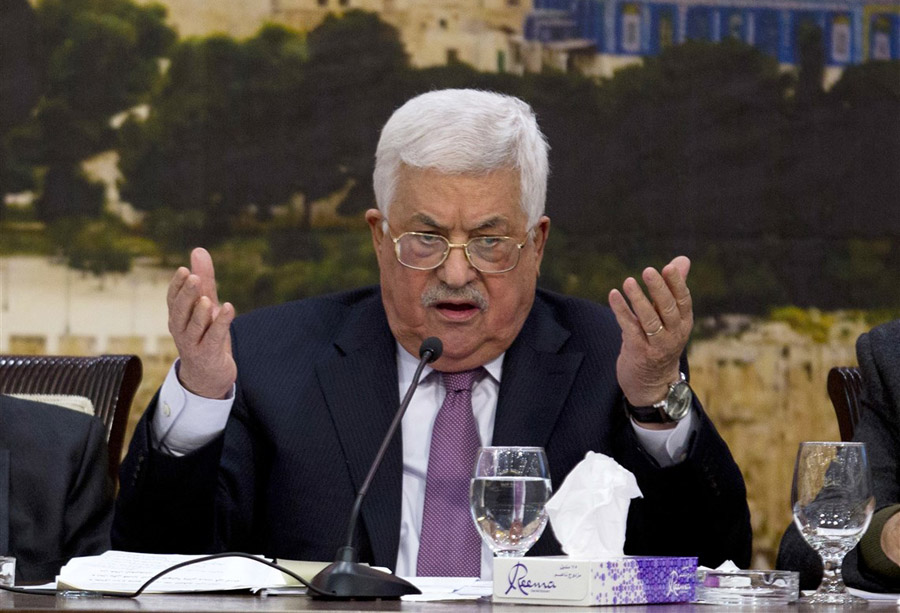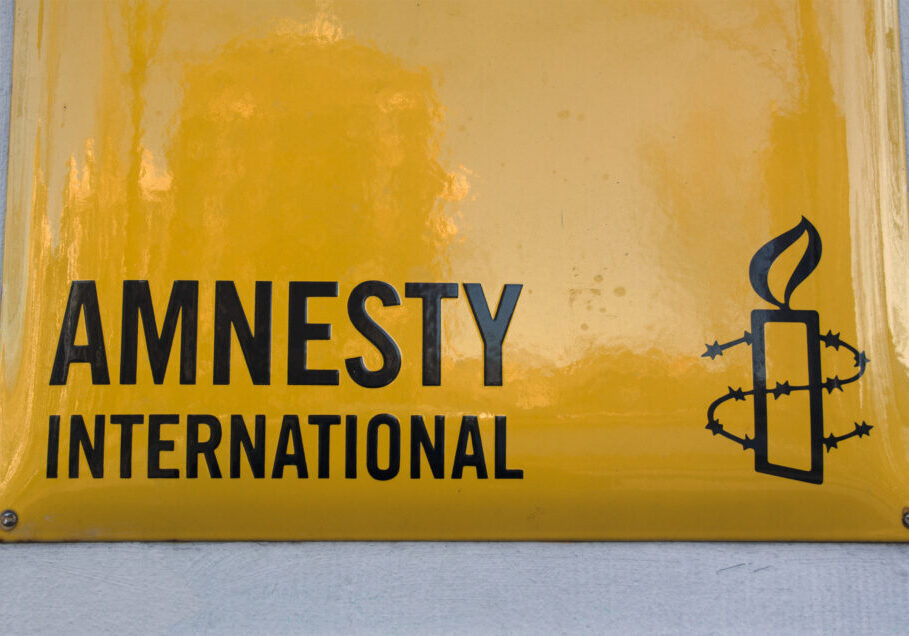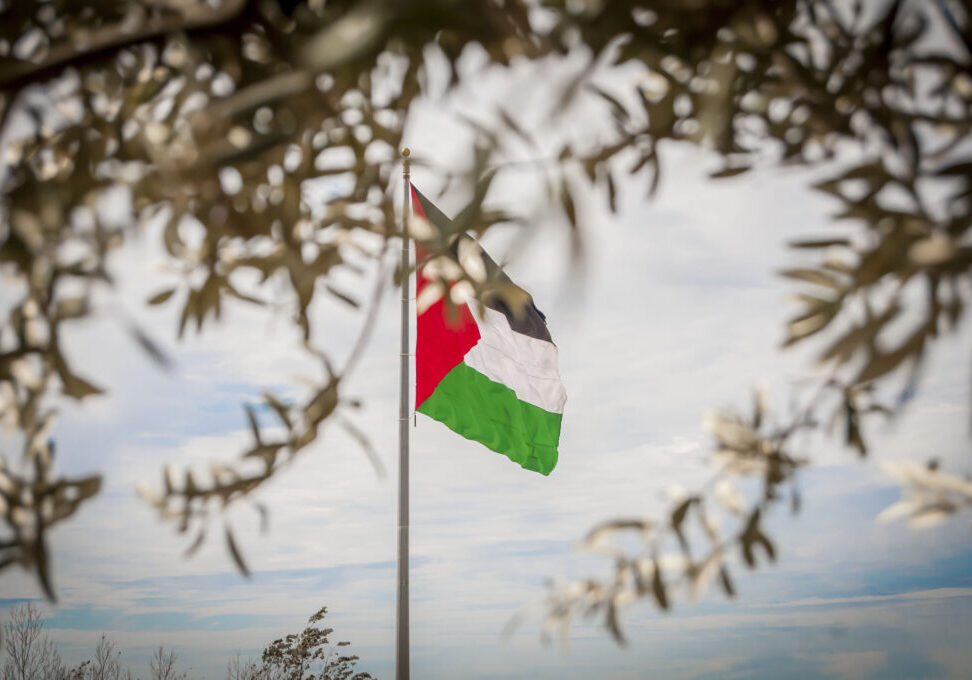Australia/Israel Review
The Tragedy of Mahmoud Abbas
Jan 31, 2018 | Grant Rumley

The PA leader’s bitter twilight
Picture a Palestinian leader in the twilight of his reign. Besieged on all sides and challenged by younger upstarts, he lashes out against Israel, his Arab brethren, and the United States. Other Palestinian officials jockey to replace him, convinced he’s past his prime. This is how it ended for Yasser Arafat, whose insistence on waging the second intifada left him isolated in the final years of his rule. It may well be how it ends for Mahmoud Abbas.
On Sunday Jan. 14, the 82-year-old Abbas, the President of the Palestinian Authority, gave a speech in front of the Palestine Liberation Organisation’s Central Council. Over two rambling hours, he deployed antisemitic tropes, undercut the Jewish connection to Israel, and blamed everyone from Oliver Cromwell to Napoleon to Winston Churchill for Israel’s creation. He repeatedly cursed President Donald Trump (“may your house fall into ruin”); he has also said he would boycott Vice President Mike Pence’s then upcoming visit. He issued indirect rebukes of Arab leaders (“no one has the right to interfere with our affairs”) after days of reportedly confrontational meetings with other Gulf officials (“if [they] really want to help the Palestinian people, support us, and give us a real hand. If not, you can all go to hell”).
Frustration, it seems, has led Abbas to reveal his true colours. In recent years, he’s accused Israeli rabbis of supporting the poisoning of Palestinian water wells, claimed Jews had “fabricated” history, and insisted he would “never recognise the Jewishness of the state of Israel.” This dalliance with antisemitism brings to mind his controversial PhD thesis, which downplayed the number of victims of the Holocaust and suggested a link between Zionism and Nazism. Though he later backtracked on the claims in his thesis, his recent diatribes call into question his sincerity.
Abbas – the man who became president on the pledge to finally make a deal with the Israelis through public diplomacy and nonviolence – has morphed into Arafat, the very figure he pledged not to become. It’s a remarkable fall from grace for a leader who started with such potential.
At the time of Abbas’ ascension, Western leaders could not have imagined a more ideal Palestinian leader. In the last years of his presidency, Arafat had drawn the Palestinians into a bloody intifada, or uprising, which provoked an Israeli siege of his headquarters in Ramallah and the construction of a separation barrier between parts of the West Bank and Israel. Towards the end of the intifada, many in the Palestinian leadership knew it was a mistake. “We told Arafat he was gambling with [the intifada],” one senior Fatah official recalled later. “We told him he would turn the whole world against us.”
Now, the roles have been reversed. For years now, a majority of Palestinians have wanted Abbas to resign. The cornerstone of his foreign policy – seeking international recognition for an independent Palestinian state – has largely proven fruitless. At home, he has curbed the space for dissent, enacting laws allowing the arrest of citizens for criticising his government on social media. His Fatah party is split between rivals who challenge his rule outright, like the exiled former strongman Muhammad Dahlan, and those like vice president Mahmoud al-Aloul, who declared “all forms of resistance” legitimate after Trump gave a speech in which he recognised Jerusalem as the capital of Israel.
Through it all, Abbas has maintained a firm commitment to security coordination with Israel, despite the fact that this is a deeply unpopular, emotive issue for Palestinians. His “sacred” commitment has only further alienated him from his people.
Abbas seems aware of this disconnect from Palestinians, and is trying to bridge the divide. In recent years, many Palestinians have begun supporting a one-state approach, one that forgoes the traditional Oslo-era two-state plan. For Abbas, the Palestinian official responsible for ushering his people into the Oslo years, such a stance is seemingly unfathomable. Yet as support among Palestinians for the one-state approach has grown, Abbas has referenced it more. At the UN General Assembly this year, he declared the two-state solution to be “in jeopardy” and warned that he might “search for alternatives that preserve our rights.” Only minutes after Trump’s speech, Saeb Erekat, his top negotiator, declared that the two-state solution “is over” and that “now is the time to transform the struggle for one-state with equal rights.”
Similarly, many Palestinians have long viewed Abbas’ aversion to popular protests as a hindrance. Recent polls have found a clear majority of Palestinians support popular protests, like the ones in Jerusalem last summer where thousands took to the streets to protest Israel’s installation of metal detectors on the Temple Mount-al-Aqsa Mosque compound after a terror attack. At the time, Abbas repeatedly voiced his support for these protests; in his recent speech, he referenced the popular protests at least three times.
This is a marked shift from several years ago, when the Palestinian leadership feared that the ire animating wide-scale protests may be redirected back at them, challenging their rule. In recent years, protests against Palestinian Authority policies on things like teacher salaries and social-security payments have roiled Ramallah, to the point where Abbas’ forces have taken an increasingly heavy hand. Indeed, the change in his rhetoric is the chief reason why he won’t be able to usher in a new strategy – most people simply won’t believe his change in tone is genuine.
When Abbas does eventually leave the scene (on Jan.14, he said that this may be “the last time you see me here”), his defining policy positions – a preference for negotiations adhering to the two-state solution formula, a laudable commitment to non-violence, and a resolute commitment to security coordination with Israel – could likely go with him. Whoever rises to follow him may well do so because of his contrast with Abbas, in the same way that Abbas took Arafat’s place after his death in 2004 on the promise of negotiations over open conflict.
This is the larger tragedy of Mahmoud Abbas. In him, the world saw a reformist, a leader who could get the Palestinians to the table and possibly clear the hurdle for the two-state solution. Instead, he has morphed into a bureaucratic tyrant at home, hostile to America and downright incendiary towards Israel. His rule has alienated his people, leaving them disillusioned and disenfranchised. He likely has inadvertently tipped the scales in favour of a more volatile successor. And that, to use his own words, may just result in the destruction of all that has been built.
Grant Rumley is a research fellow at the Foundation for Defence of Democracies, where he focuses on Palestinian politics. He is the co-author of The Last Palestinian: The Rise and Reign of Mahmoud Abbas, the first English-language biography of the Palestinian leader. Reprinted from the Atlantic. © Foundation for Defence of Democracies, reprinted by permission, all rights reserved.
Tags: Palestinians






